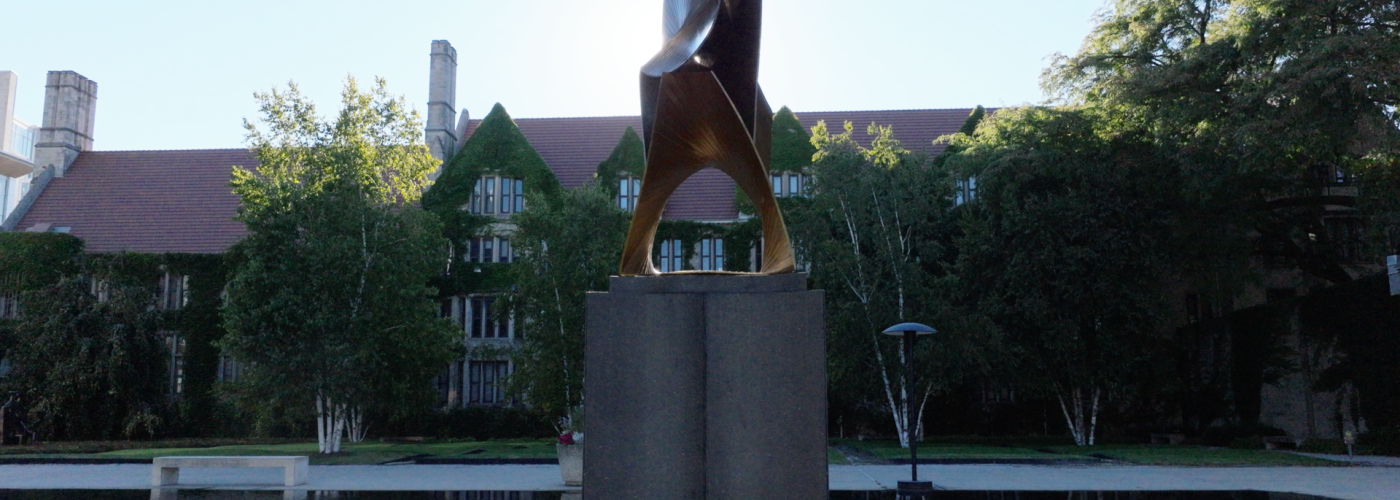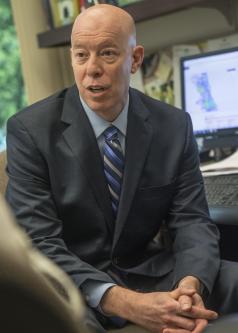News
As a former camp counselor, tutor, and SAT prep course instructor, Caroline Kassir, ’26, has always enjoyed working with youth, so when she began her time at the Law School, she knew she wanted to pursue opportunities to use what she was learning to advocate for young people.
Taylor Guthrie, ’26, became interested in wrongful convictions work in high school after she read the memoir, The Sun Does Shine: How I Found Life and Freedom on Death Row, by Anthony Ray Hinton, a man who spent 30 years on death row for a crime
The Law School recently received a significant gift to advance the study of constitutional law from Debra A. Cafaro, ’82, chairman and chief executive officer of Ventas, a leading S&P 500 company and one of the world’s largest owners of senior housing. She is also a member of the University of Chicago Board of Trustees.
Faculty in the News
A novel approach to a centuries-old law
Craig Futterman, a clinical law professor at the University of Chicago said while there’s no doubt that federal government has the right to enforce immigration laws, it remains to be seen whether the courts will accept Illinois and Minnesota’s interpretation of the 10th Amendment.
The strongest call for prosecutions came from Craig Futterman. He’s a member of the legal team that brought the lawsuit that prompted U.S. District Judge Sara Ellis to restrict the feds’ use of forcein an order last fall. After a hearing in that case Thursday, he told reporters that local officials “have the power” to arrest federal agents who violate state crimes.
Spotify episode description: In this episode, I sit down with Alison LaCroix, the Robert Newton Reid Professor of Law at the University of Chicago, to discuss her recent book: The Interbellum Constitution (2024). It looks at the period between the end of the War of 1812 and the Civil War and tells a very different story about Constitutional meaning and change. One that brings in different characters and gives us a new way to understand the role between history and law.


